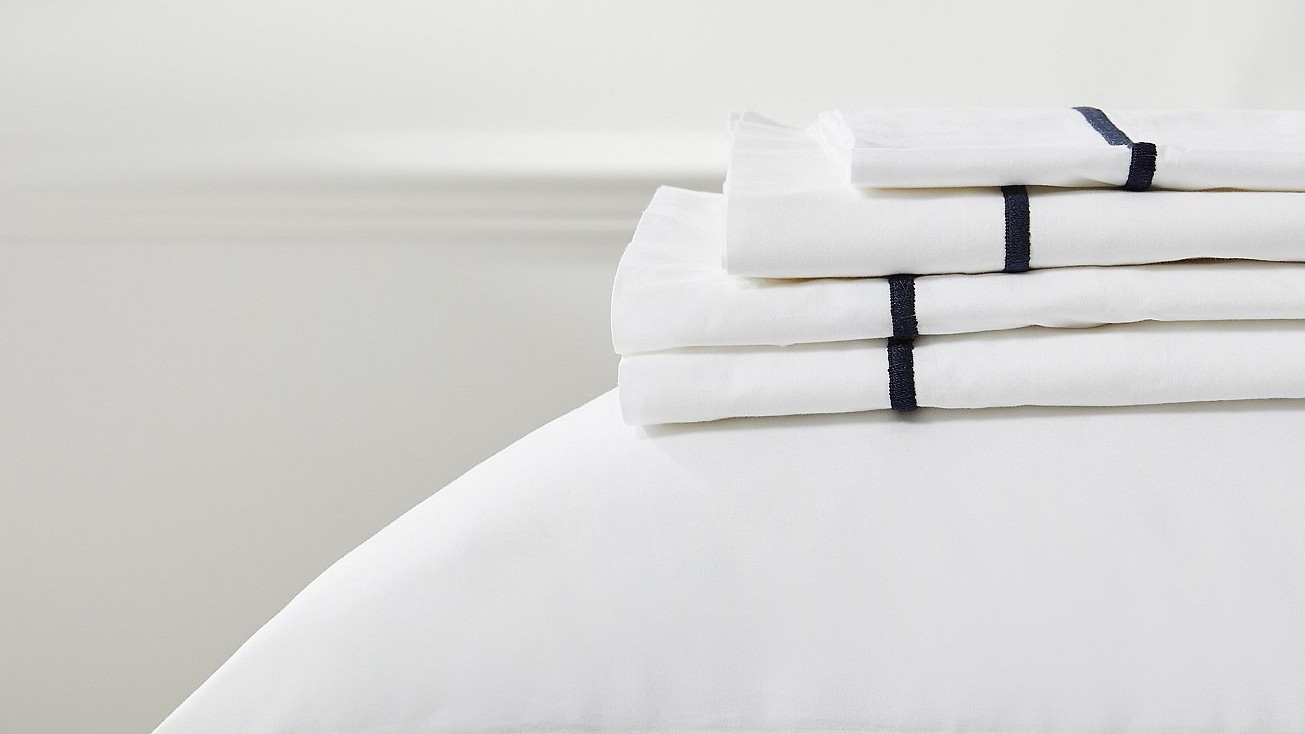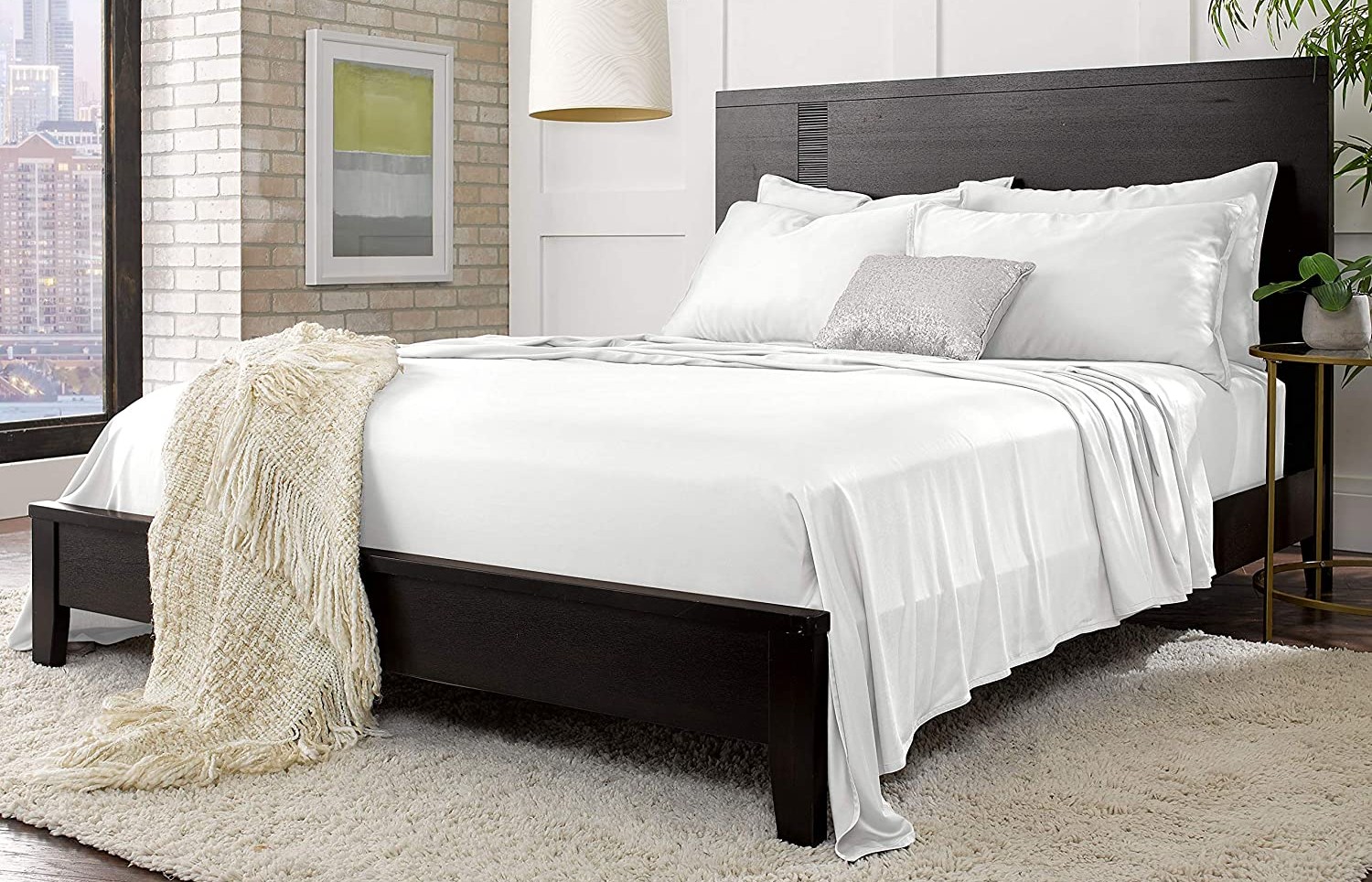What's the best thread count for bed sheets?
The higher the better, right? Wrong. We explain what thread count you need to look for

When you're looking for the best sheets, it can be difficult to choose between the different options. And so manufacturers try to lure us to their products by stressing specific measurable qualities. One of the most common – and controversial – of these is the thread count (aka TC).
On the face of it, it might seem a pretty straightforward measurement. You count the number of horizontal threads (i.e. strands of fabric) in a square inch of fabric, and multiple it by the number of vertical threads. The higher the thread count, the tighter the weave, and the higher the quality of the sheet.... right? Well, not exactly.
What's a good thread count for sheets? Short answer: 180 and up is acceptable, 400-800 is considered very high quality.
However, in reality it's a bit more complicated than that. This guide is here to explain exactly what different numbers mean, and help you figure out the best thread count for your sheets.
- Upgrading your bed? Arm yourself with the best mattress you can afford
- ... alongside the best duvet and best pillow
- You might also want to check out the best bath towels around
Comparing like with like
The problem is that not all threads are the same quality. So a sheet with a thread count of 400 could theoretically be better quality than one with a thread count of 1000, if it was made with higher quality thread.
Thread count, in itself, tells you nothing in itself about a fabric’s breathability, comfort or softness. Breathability, for instance, comes down to what the sheet is made from. A sheet made from cotton would have more breathability than a sheet made from polyester, even if they had the same thread count.

Softness and comfort also depend on the type of yarn used to create the sheet. A 100% bamboo fibre sheet, for example, will be much softer and more slippery than a 100% cotton sheet, even if they had the same thread count.
Get all the latest news, reviews, deals and buying guides on gorgeous tech, home and active products from the T3 experts
Similarly, Egyptian cotton is renowned as the pinnacle of quality sheet material. And yet, because Egyptian cotton has longer threads, fewer threads are required to keep the fabric together... lowering the thread count.
When thread count is useful
Does this mean thread count is useless as a metric when buying sheets? Not at all. The more information you can find out about a sheet, the better.
Ideally you'll want to know the thread count, the size of the sheet, type of material used, style of weave, country of origin, reputation of the manufacturer, and more. The point, though, is that you can't judge the quality of a sheet on one of these facts only: you need to consider everything in its totality.
And be warned. In the spirit of free enterprise and competition, manufacturers are constantly battling to calculate their thread counts in a way that presents impressive numbers.
For example, they may count not just each thread, but each fibre (called plies) that make up each thread. So a single thread might be four plies twisted together; one manufacturer will call that one thread, while another will call it four. There's no central regulations here to enforce common standards across the board.
Some unscrupulous brands even try to ‘jam in' as many threads as they can during manufacturing to increase the thread count. However, while that increases the number, it doesn't necessarily increase the quality. These threads may be short, stubbly and clog up the fabric. That means they'll be prone to pilling and won’t feel as soft when you run your hand across the fabric.
What is a good thread count?
In short, as the Latin saying goes, caveat emptor: let the buyer beware. That said, if you're dealing with a reputable brand or retailer, and you don't suspect them of pulling such dirty tricks, what kind of thread counts should we be looking for?
- Most experts agree that with cotton sheets, a thread count of 180 and up is generally fine, while anything closer to 400 will be on the softer side.
- If the thread count is between 400 and 800, the sheet will probably be labelled 'percale' or 'sateen', which are very high quality weave styles. If not, be suspicious.
- Anything above 800 is probably dodgy; there's probably either some "creative accounting" or overcramming of threads going on, although there are exceptions at very expensive, luxury end of the market.

Other materials have different thread counts, though. With quality linen, for example, thread counts will be much lower: anything between 50 and 150 would seem about right. With bamboo, it gets even more confusing, as there are different ways to transform the raw material into fabric, each of which will result in different thread counts.
In short, while thread count is worth paying attention to, don't take it as the be-all and end-all. The quality of the material, the type of weave and the reputation of the manufacturer are all worth taking into account too.

Tom May is a freelance writer and author of the book, Great Ted Talks: Creativity. He has been editor of Professional Photography magazine, associate editor at Creative Bloq, and deputy editor at net magazine. He has also worked for a wide range of mainstream titles including Radio Times, NME, Heat, Company and Bella.
